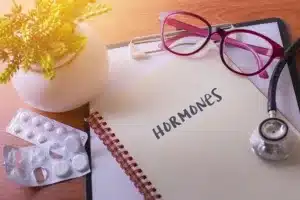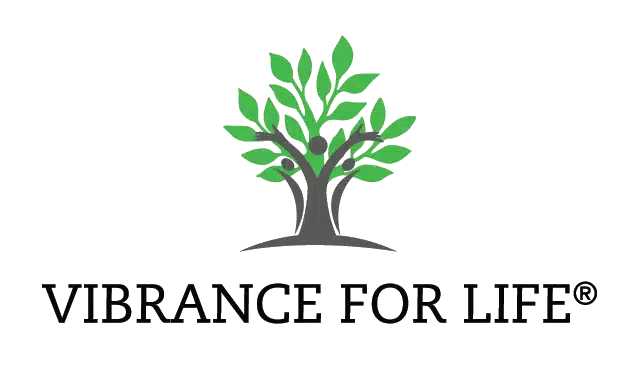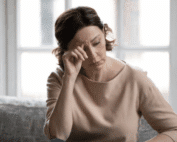Featured
Hormone Therapy For Menopause: Are You A Candidate?
You would be hard pressed to find any woman who welcomes the onset of menopause with open arms. After all, night sweats, mood swings and a lowered libido don’t exactly conjure up the image of aging gracefully. Although menopause itself cannot be avoided, the dreaded symptoms that come with it can be reduced through a medical treatment known as hormone therapy for menopause.
What Is Hormone Therapy?
Hormone therapy (also called hormone replacement therapy, HT or HRT) generally refers to any treatment in which a patient receives hormones throughout the course of a medical treatment. In this instance, a doctor might suggest hormone therapy to a woman around the age of 50 who is experiencing menopausal symptoms such as hot flashes, difficulty sleeping, night sweats, irregular or missing periods, mood swings, painful sex and changes in hair, skin and weight.
Hormone therapy for menopause works by replenishing the body’s decreased estrogen and progesterone levels. Women naturally produce less estrogen as they age, and this drop in hormone levels is a key factor behind the severity of the symptoms experienced during menopause. This type of hormone therapy is also beneficial for preventing osteoporosis, as a woman’s bones are more likely to weaken as she approaches the onset of menopause.
Hormone therapy for menopause comes in two forms:
- Estrogen-progesterone therapy (EPT): This type of treatment is ideal for women with a uterus. Using estrogen only for symptom relief can increase a woman’s chance of developing uterine cancer. The progesterone in EPT helps protect the uterine lining while still relieving menopausal symptoms.
- Estrogen-only therapy (ET): This type of treatment is administered to a women who has had a hysterectomy (full removal of the uterus), as she would no longer require progesterone to protect the uterine lining. However, since progesterone can have positive effects elsewhere in the body such as brain, breasts, and helping calm anxiety and producing a deeper, restful sleep, talk to your doctor about the benefits of taking both hormones.
Both EPT and ET treatments can be administered via several methods – such as oral tablets, patches, vaginal gels and topical creams – with varying levels of estrogen and/or progesterone depending on the needs of the patient.

Who Should Consider Hormone Therapy for Menopause?
Numerous studies have provided sufficient evidence supporting the claim that hormone therapy is the most effective method of alleviating menopause symptoms. If at least four of the following statements apply to you, hormone therapy for menopause might be a good fit for you:
- I am a woman between the ages of 45 and 65.
- I am a woman under 40 going through premature menopause.
- I regularly suffer from hot flashes.
- My menstrual cycle is absent or irregular.
- My sleep is often interrupted due to night sweats, insomnia and/or an overactive bladder.
- Intercourse is suddenly uncomfortable due to dryness, pain and/or an overall disinterest.
- I have been diagnosed with osteoporosis or told I am at risk.
- The symptoms I am feeling have caused me to feel anxious and/or moody.
Who Should Avoid Hormone Therapy for Menopause?
Although the benefits behind hormone therapy for menopause generally outweigh the risks, the treatment isn’t a one size fits all solution. Women with a personal or family history of breast cancer, uterine cancer, heart disease or liver disease are advised to opt out of hormone therapy. Women undergoing estrogen-based hormone therapy also have a higher likelihood of developing blood clots if given oral estrogen, so women prone to clotting should avoid this treatment. Studies have shown that giving estrogen transdermally (through the skin) has negligible risks for clots.
Believe it or not, not all women suffer from menopause symptoms! Hormone therapy for menopause is designed for women experiencing debilitating side effects that hinder their ability to live normally. If you are going through menopause without suffering from the aforementioned symptoms, there may not be enough of a reason to undergo any sort of hormone treatment. Additionally, hormone therapy is not a preventative procedure. Increasing your estrogen levels prior to onset menopause can cause hormonal chaos and increase the likelihood of developing ovarian cysts, fibroids, and breast or uterine cancer if not balanced properly with diet and progesterone.
Do not let the potential risk factors deter you from considering hormone therapy as a solution for your menopausal symptoms. Most doctors will prescribe the lowest dosage of hormones possible to still be effective without increasing your chances of developing these potential side effects.

The Next Steps
If you believe hormone therapy for menopause is the right fit for you, your next step is to consult with a functional medicine doctor. He or she will walk you through the process, covering treatment options, benefits, and potential risks specific to your unique health history.
Dr. Lorraine Maita specializes in bioidentical hormone therapy, including treatment for menopause and perimenopause. Dr. Maita is a recognized and award-winning holistic, functional, and anti-aging physician and author. She transforms people’s lives by getting to the root cause of illness using the best of science and nature. Her approach is personalized, precision medicine where you are treated as the unique individual you are. If you’re ready to start your journey to a healthier, happier life, schedule your visit today!
 Lorraine Maita, MD, CEO & Founder of The Feel Good Again Institute and Vibrance for life and widely known as “The Hormone Harmonizer”, has helped thousands of people ditch fatigue, brain fog, mood swings, lose weight, and achieve balanced hormones so they Feel Good Again.
Lorraine Maita, MD, CEO & Founder of The Feel Good Again Institute and Vibrance for life and widely known as “The Hormone Harmonizer”, has helped thousands of people ditch fatigue, brain fog, mood swings, lose weight, and achieve balanced hormones so they Feel Good Again.
She is a recognized and award-winning triple board certified, holistic, functional, integrative and anti-aging physician, speaker and author, and has been featured in ABC News, Forbes, WOR Radio and many media outlets to spread the word that you can live younger and healthier at any age.




